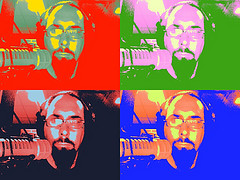I’ve been a radio broadcaster working in college, community and public radio since 1989, with just one year off from May 1993 to May 1994. And while I’ve had some sporadic work in radio, most recently as a college station adviser, as Matthew emphasizes, my approach is more as a listener and enthusiast rather than an industry insider. Much of what is written about radio is for the industry insider, and is therefore concerned more with profits, ratings and staffing changes than with the place of the medium in our society and everyday lives. Also often missing from insider coverage is critical analysis that challenges the business orthodoxy.
I write for Radio Survivor because I wish to challenge myself and others to consider what radio can be, not just be content or discontented with how it is. We can recognize the damage wrought by consolidation without giving in and leaving the medium for dead. We can highlight the stations and places where innovation is happening and 21st century is in the making. We can encourage new or lost listeners to give radio a new chance.
Radio, as a medium, has a great chance to survive because of the internet, iPods and mobile phones, not in spite of them. Just because Clear Channel and its mostly bankrupt consolidating brethren were too busy buying up stations, firing staff and elminating local service to notice the internet revolution doesn’t mean that the internet has to kill radio. I believe that there is still an audience that pines for local news, information and culture that is still hard to find on the internet, that doesn’t require a monthly broadband bill or data package and is there in the car, in the home or a hundred miles away from the nearest wi-fi hotspot. And as internet access becomes more ubiquitous and less costly radio can still be a complementary part of our information environment.
That’s Radio Surviving.



